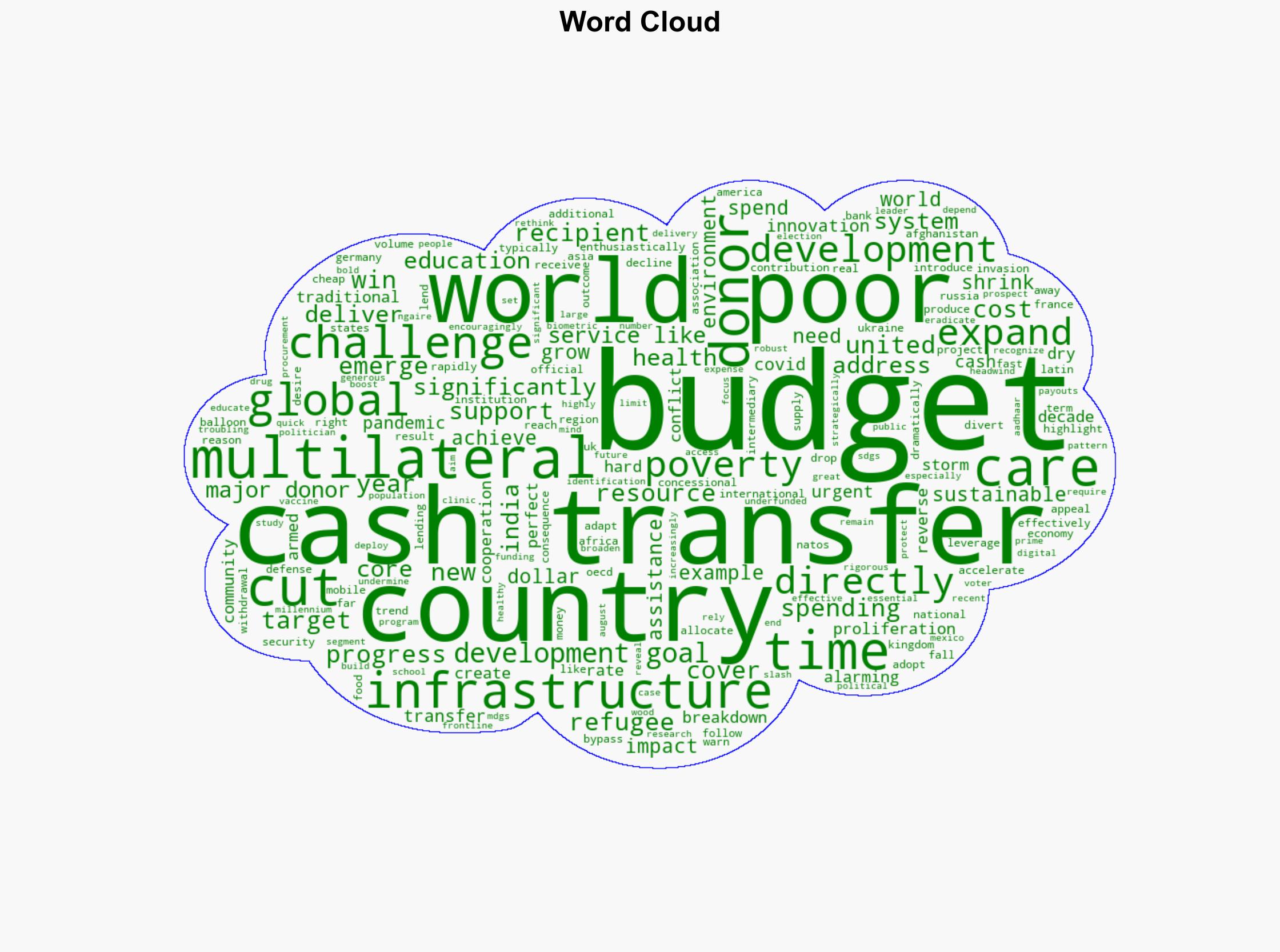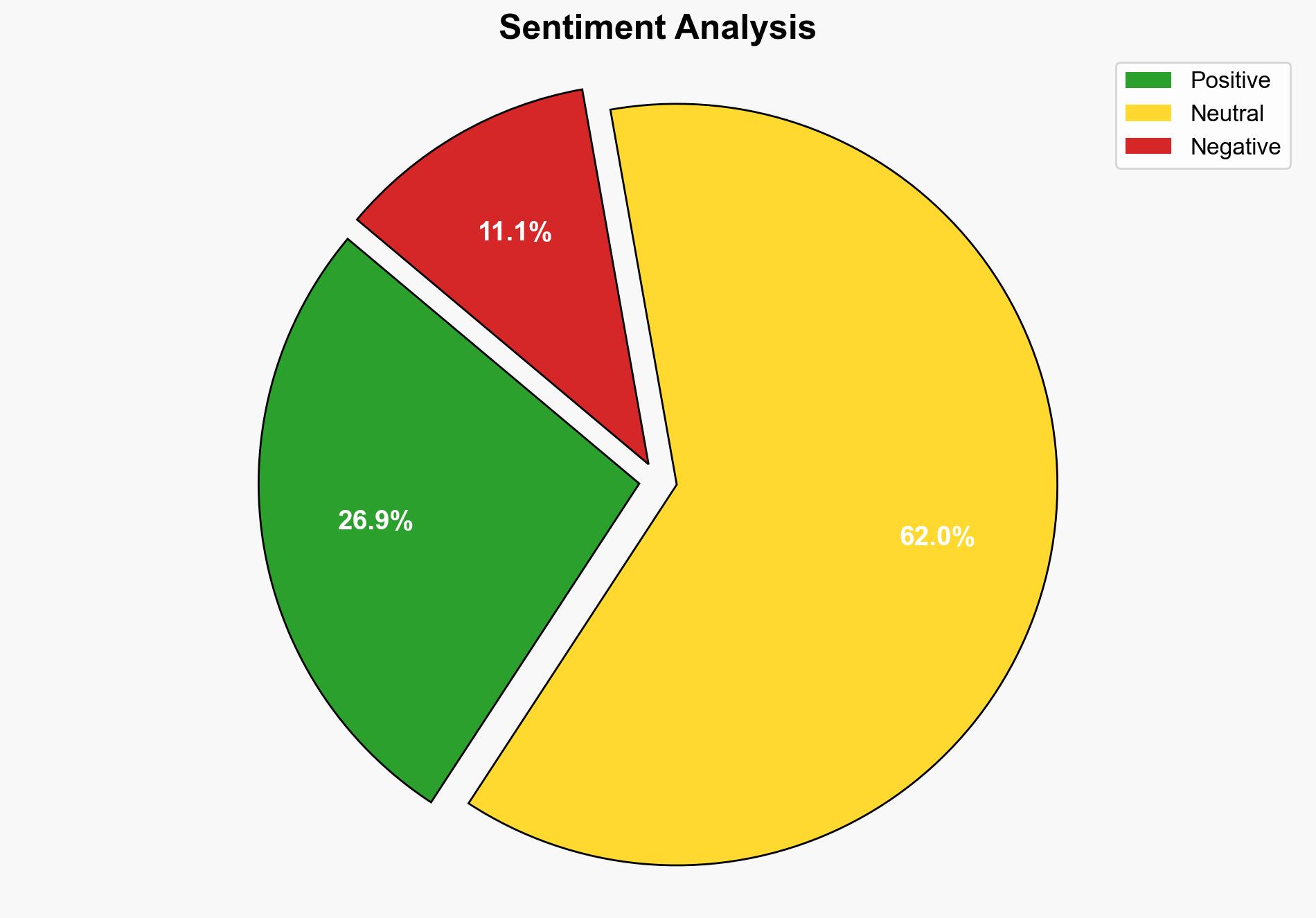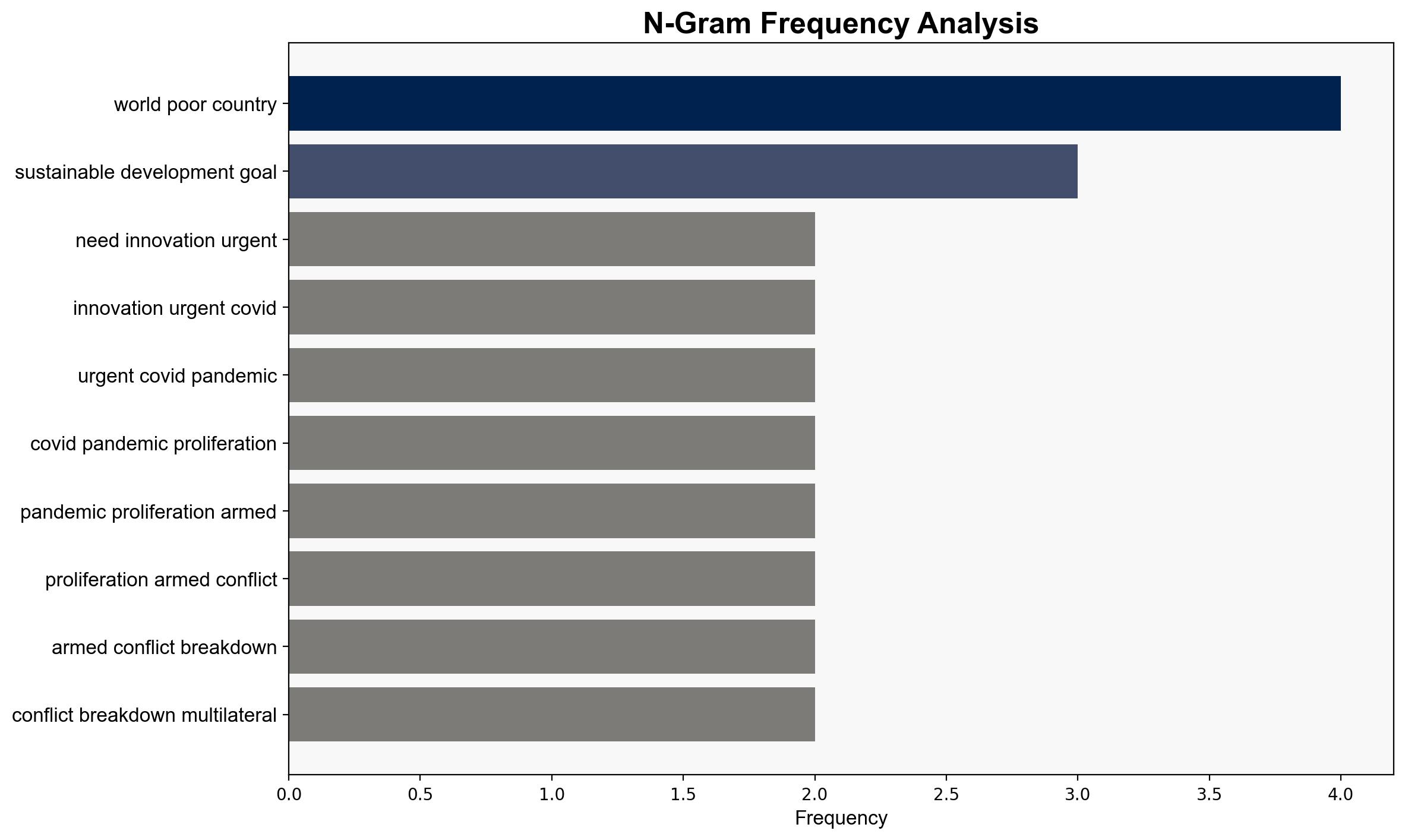Unsustainable Development Goals – Project Syndicate
Published on: 2025-09-15
Intelligence Report: Unsustainable Development Goals – Project Syndicate
1. BLUF (Bottom Line Up Front)
The most supported hypothesis is that the current geopolitical and economic environment is significantly hindering the achievement of Sustainable Development Goals (SDGs), necessitating a strategic shift towards direct cash transfers and innovative funding mechanisms. Confidence Level: Moderate. Recommended action includes re-evaluating funding allocation strategies and enhancing multilateral cooperation to address emerging challenges.
2. Competing Hypotheses
1. **Hypothesis A**: The global economic and geopolitical environment, characterized by shrinking budgets and shifting priorities, is obstructing the achievement of SDGs. Direct cash transfers are emerging as an effective alternative to traditional aid mechanisms.
2. **Hypothesis B**: Despite the challenging environment, the SDGs can still be achieved through enhanced multilateral cooperation and innovative funding strategies, including leveraging digital infrastructure for more efficient aid distribution.
Using Bayesian Scenario Modeling, Hypothesis A is more likely given the evidence of budget cuts and the growing appeal of cash transfers as a direct aid mechanism.
3. Key Assumptions and Red Flags
– **Assumptions**: Hypothesis A assumes that direct cash transfers will continue to be effective and scalable across different regions. Hypothesis B assumes that multilateral cooperation can be revitalized despite current geopolitical tensions.
– **Red Flags**: Potential over-reliance on cash transfers could undermine essential public services. The assumption that digital infrastructure is universally robust may not hold true in all regions.
– **Blind Spots**: The impact of geopolitical shifts on long-term funding commitments and the potential for political misuse of cash transfer programs.
4. Implications and Strategic Risks
– **Economic Risks**: Continued budget cuts could exacerbate poverty and inequality, leading to increased instability in vulnerable regions.
– **Geopolitical Risks**: Shifting donor priorities towards national security could further reduce funding for development goals, impacting global stability.
– **Cascading Threats**: Failure to achieve SDGs could lead to increased migration pressures and humanitarian crises, straining international relations.
5. Recommendations and Outlook
- Reassess and diversify funding strategies to ensure sustainable support for SDGs, prioritizing innovative mechanisms like digital cash transfers.
- Strengthen multilateral cooperation frameworks to address geopolitical challenges and align donor priorities with global development needs.
- Scenario Projections:
- Best Case: Enhanced cooperation and innovative funding lead to significant progress in achieving SDGs.
- Worst Case: Continued geopolitical tensions and budget cuts result in a reversal of development gains.
- Most Likely: Partial achievement of SDGs with regional disparities due to uneven funding and cooperation.
6. Key Individuals and Entities
Ngaire Woods, World Bank, International Development Association, OECD, India, Mexico, France, Germany, United Kingdom, United States.
7. Thematic Tags
national security threats, economic development, multilateral cooperation, digital infrastructure





